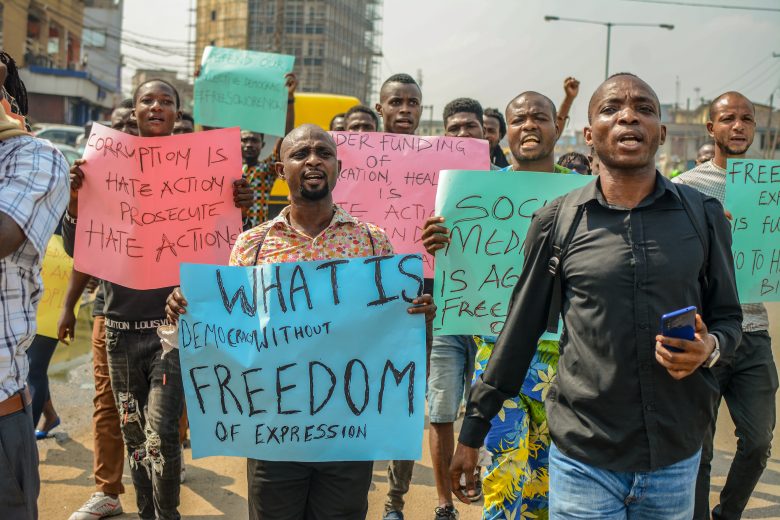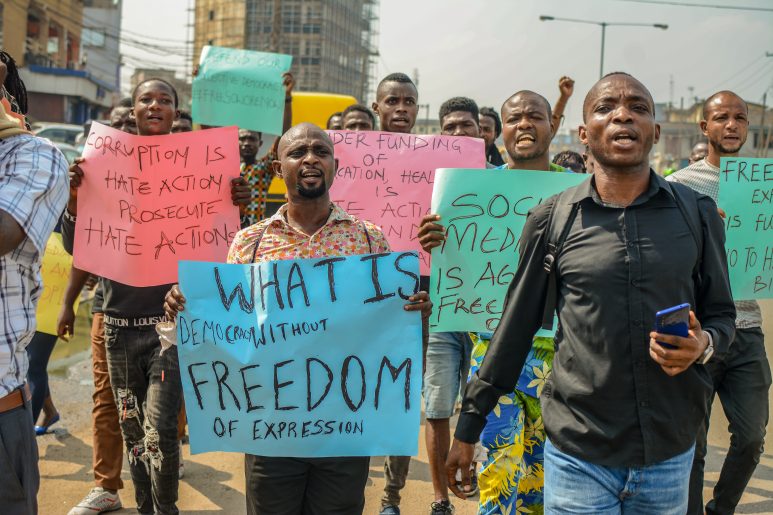By Raphael Mweninguwe, freelance journalist
Kenya’s current protests against the government are attracting attention, and rightly so. What is happening there today is crucial for all Africans and especially for the youth, who are playing a key role.
What does it mean for my country Malawi and for other African nations?

Since the 2019 disputed general election results, Malawi seen a rise in the number of street demonstrations. They have been mainly against the government’s handling of the economy which has seen rising costs of living and increasing cases of corruption. Another demonstration is planned for the 8th of August, this time against new government taxes that organisers say are hitting people hard.
Social media, powerful tools for all
At the heart of these demonstrations is the use of social media, such as X, Facebook, Instagram and WhatsApp, where the youth have been voicing their concerns especially on issues affecting them like unemployment and better education.
One of Malawi’s hip-hop artists who is also an executive youth member of United Transformation Movement (UTM) party, Penjani Kalua, uses his Facebook page to highlight problems such as unemployment, corruption and a poor education system, which he sees as hindrances to youth development.
With over 400,000 followers on Facebook, Kalua, who is also known as Fredikiss, appeals to young people to actively participate in political activities and his appeal is resonating well with many people.
“This generation of young people can manage to hold their leaders accountable if they are not walking the talk,” says Meclina Chirwa, a media professional and chair of the Wash Media Forum, a local media NGO.
Chirwa pointed out that the country’s poor governance system is prompting young people to mobilise themselves through social media to demand political change. “Already I heard some youth in Malawi blaming themselves for not acting on Malawi’s poor governance [system],” she said. “Our young people need answers from the promises politicians make. They no longer trust the older generation holding political offices and this is why they go on social media demanding change. They feel social media is the only quick way to have their leaders hear their concerns and because they are in majority they believe that social media is the only unifying factor for them,” said George Mhango, a freelance journalist.
Unfulfilled promises
Youth employment is one of the major promises politicians use to woo young voters. Malawian politicians have used tackling unemployment as a tool that energises young people to vote for them and this has been the trend since the 1994 general elections. However, each time politicians are elected to higher office, youth have never been rewarded with the promised jobs.
President Chakwera promised young people 1 million jobs within a year of his presidency when he took office in 2020. It never happened.
But Malawi is not the only country facing rising youth unemployment. The International Labour Organisation (ILO) points out that in North Africa, unemployment rates, which are considered to be the main cause of the Arab Spring uprisings in 2011, are quite high at 23.8% and are “projected to remain high over the next five years”.
Political unrest in Senegal and in Kenya in 2023 and June 2024 respectively are a result of young people using social media, venting their frustrations on the systematic corruption and political systems that are failing them.
In Kenya the situation is no different from that of Malawi and the rest of Africa. The Kenyan President William Ruto in his campaign promised young people greater economic opportunities, which the president has failed to deliver.
“In other countries like Kenya, social media has enabled those in leadership position to be held accountable to those who put them into office. The leaders promised during political campaigns things like job creation, an end to corruption, better education, health services and good governance. But looking at what is happening on the ground, there is nothing, a development that might have triggered protests in Kenya, recently,” said Mhango.
Social media pressure
Social media is an alternative source of information for millions of people in Africa and the number of people using digital sources to communicate what is on their mind is on the rise. Statistics show that in Kenya the number of social media users has gone up to 10.55 million as of 2023. As of January 2024 Malawi had 1.30 million social media users, about 6.1% of the total population of 19.1 people.
These numbers should be a wake-up call to any government. Social media has become an integral part of communication for young people who are demanding political change and an effective tool for political movements.
Pictures from shutterstock.com
Disclaimer:
The views and opinions expressed in this article are solely those of the author and do not reflect the official policy or position of the Media Diversity Institute. Any question or comment should be addressed to [email protected]

